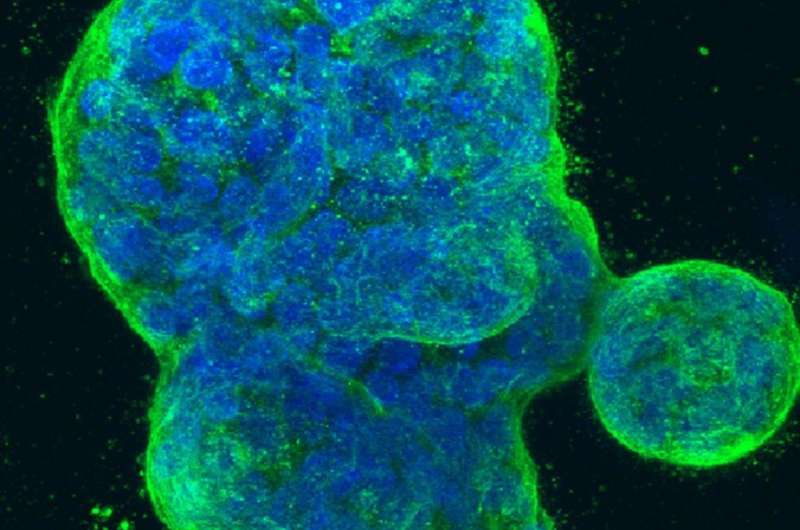Researchers develop comprehensive new way to predict breast cancer risk

Scientists have created the most comprehensive method yet to predict a woman's risk of breast cancer, according to a study by Cancer Research UK published in Genetics in Medicine.
They have a developed a way of calculating the risk of developing the disease by combining information on family history and genetics with other factors such as weight, age at menopause, alcohol consumption and use of hormone replacement therapy.
Although individually some of these things have a small impact on the likelihood of developing the disease, researchers found that by considering all of them at once, plus family history and genetics, they can identify groups of women who have different risks of developing breast cancer.
Importantly, for the first time, researchers have taken into account more than 300 genetic indicators for breast cancer. This makes calculating the risk much more precise than ever before.
From this, the researchers have created an online calculator for GPs to use in their surgeries. Some GPs, practice nurses and genetic counsellors are testing this tool before it is considered for wider use. Doctors are prompted to answer a series of online questions about their patient including their medical and family history, whether they have any known genetic alterations linked to cancer, their weight and whether they drink alcohol.
In the future, information like this could help to tailor breast cancer screening depending on an individual's risk. For example, it could help determine what age they are first invited for breast screening or how regularly they are invited to receive it.
The risk calculation could also help people to make decisions about preventative therapy—such as identifying women at high risk who may benefit from taking the drug tamoxifen—as well as encouraging women to think about the ways they could reduce the risk themselves, for example trying to keep a healthy weight.
Professor Antonis Antoniou, lead author at the University of Cambridge, said: "This is the first time that anyone has combined so many elements into one breast cancer prediction tool. It could be a game changer for breast cancer because now we can identify large numbers of women with different levels of risk—not just women who are at high risk.
"This should help doctors to tailor the care they provide depending on their patients' level of risk. For example, some women may need additional appointments with their doctor to discuss screening or prevention options and others may just need advice on their lifestyle and diet. "We hope this means more people can be diagnosed early and survive their disease for longer, but more research and trials are needed before we will fully understand how this could be used."
Breast cancer is the most common cancer in the UK. Nearly 55,000 women are diagnosed with the disease each year. But a large proportion of breast cancer cases occur in people who are at an increased risk. Cancer Research UK has helped to double breast cancer survival over the last 40 years.
Dr. Richard Roope, Cancer Research UK's GP expert, said: "Research like this is hugely exciting because in the future it will enable us to offer much more tailored care which will benefit patients and make best use of the services that we have available.
"Although having an increased risk of breast cancer means a woman is more likely to develop the disease—it's by no means a certainty. A woman at high risk may never get breast cancer just as a woman at low risk still could. But any woman with concerns should speak to her GP to discuss the options."
More information: Andrew Lee et al, BOADICEA: a comprehensive breast cancer risk prediction model incorporating genetic and nongenetic risk factors, Genetics in Medicine (2019). DOI: 10.1038/s41436-018-0406-9



















